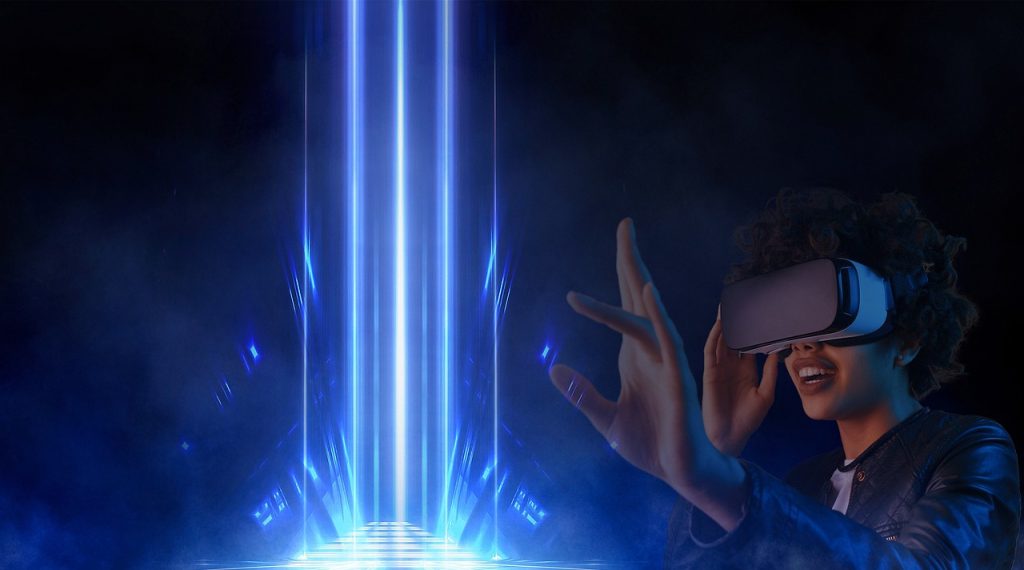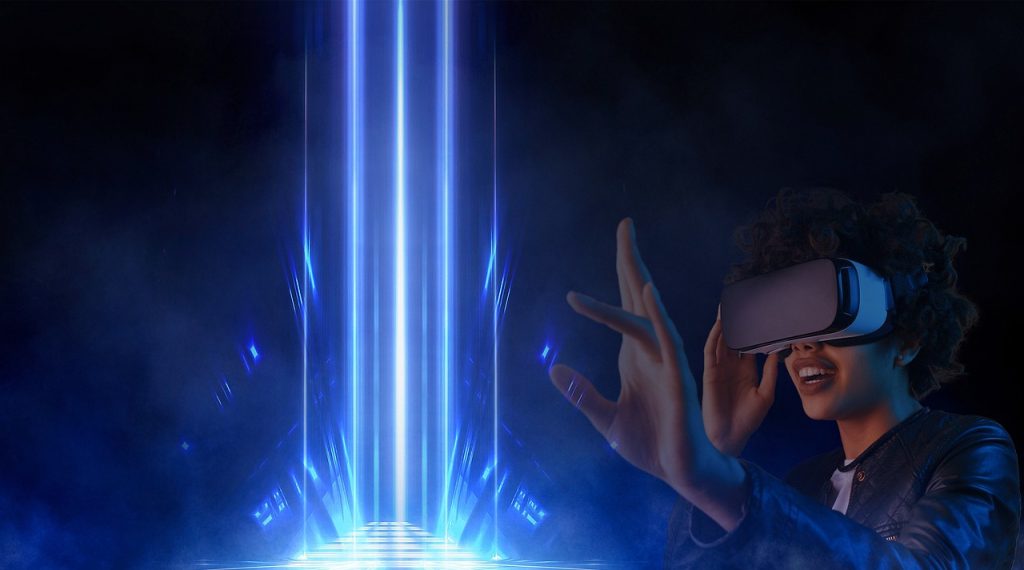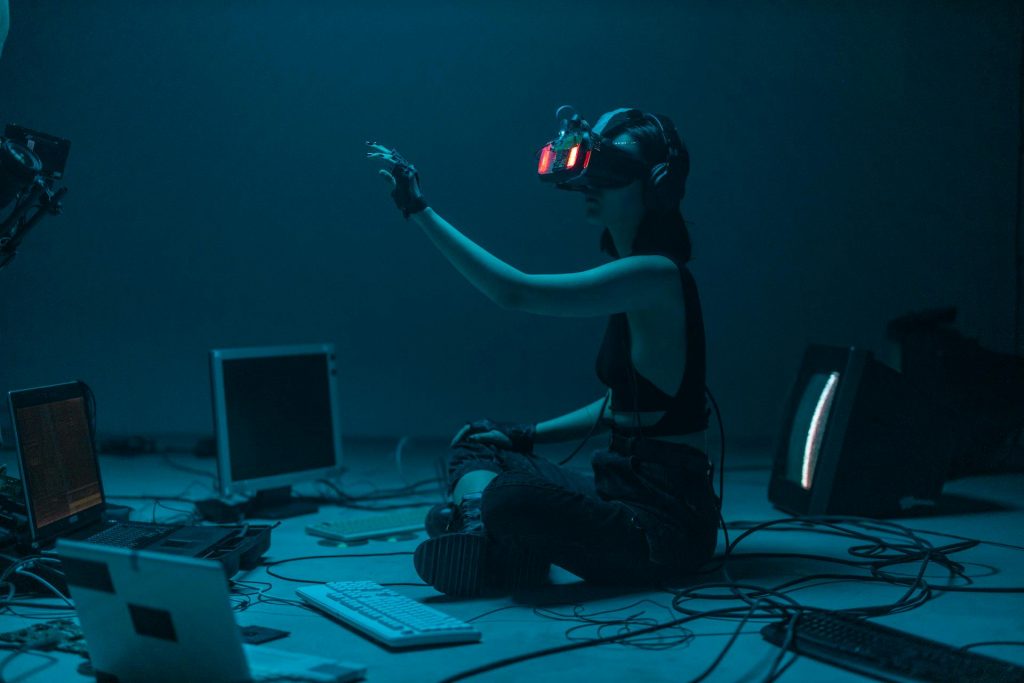The concept of the metaverse has captured the imagination of technologists, creators, and futurists alike. As a fusion of virtual reality (VR), augmented reality (AR), and the digital economy, the metaverse represents a new frontier in how we interact with technology and each other. This article delves into what the metaverse is, its potential implications, and the opportunities and challenges it presents.

Understanding the Metaverse
The metaverse is a collective virtual shared space created by the convergence of virtually enhanced physical reality and physically persistent virtual reality. It encompasses a range of digital environments where users can interact, create, and engage in various activities. Unlike traditional online experiences, the metaverse aims to offer an immersive, persistent, and interconnected digital world.
- Virtual Reality (VR): VR involves fully immersive digital environments experienced through headsets and other equipment. Users in VR interact with 3D spaces and avatars, often engaging in activities like gaming, socializing, or attending events.
- Augmented Reality (AR): AR overlays digital information onto the real world, enhancing the physical environment with virtual elements. AR applications can be used for navigation, gaming, and interactive experiences.
- Digital Economy: The metaverse includes a digital economy where users can buy, sell, and trade virtual goods and services. This economy often involves cryptocurrencies and blockchain technologies, allowing for secure and decentralized transactions.
The Evolution of the Metaverse
The concept of the metaverse has evolved from science fiction to a burgeoning technological reality. Key developments include:
- Early Foundations: The idea of a metaverse can be traced back to Neal Stephenson’s 1992 novel “Snow Crash,” which introduced a virtual world where users interact through avatars. This concept has since influenced many aspects of modern digital environments.
- Advancements in Technology: Technological advancements in VR, AR, and blockchain have laid the groundwork for the metaverse. Companies like Facebook (now Meta), Microsoft, and various startups are investing heavily in creating immersive digital experiences.
- Growth of Virtual Worlds: Platforms like Second Life, Roblox, and Fortnite have pioneered aspects of the metaverse by offering virtual spaces where users can socialize, create, and participate in digital events.

Applications and Opportunities
The metaverse offers numerous applications and opportunities across various sectors:
- Entertainment and Gaming: The metaverse transforms the entertainment and gaming industries by creating immersive virtual worlds where users can play, explore, and interact. Games like Fortnite and Roblox serve as early examples of metaverse elements, allowing players to engage in complex virtual environments.
- Social Interaction: Virtual worlds in the metaverse provide new avenues for social interaction. Users can attend virtual events, socialize with friends, and participate in communities from anywhere in the world, bridging geographical gaps.
- Education and Training: The metaverse has the potential to revolutionize education and training by offering interactive and immersive learning experiences. Virtual classrooms and simulations can enhance engagement and provide hands-on learning opportunities.
- Work and Collaboration: The metaverse can reshape the way we work by offering virtual offices and meeting spaces. Remote collaboration tools in the metaverse enable teams to interact and work together in a shared digital environment, potentially improving productivity and reducing the need for physical office spaces.
- Commerce and Marketing: The digital economy within the metaverse opens up new opportunities for commerce and marketing. Brands can create virtual storefronts, host virtual events, and engage with consumers in innovative ways.
- Healthcare: Virtual reality and augmented reality applications in the metaverse can support healthcare through telemedicine, virtual therapy, and surgical simulations. These technologies can improve access to care and enhance medical training.
- Art and Creativity: The metaverse provides a platform for artists and creators to showcase their work in new and interactive ways. Virtual galleries, performances, and creative collaborations offer opportunities for artistic expression and innovation.
Challenges and Considerations
While the metaverse presents exciting opportunities, it also comes with challenges and considerations:
- Privacy and Security: The metaverse involves extensive data collection and digital interactions, raising concerns about privacy and security. Ensuring robust measures to protect user data and prevent unauthorized access is crucial.
- Digital Divide: Access to the metaverse may be limited by disparities in technology and internet connectivity. Addressing the digital divide is essential to ensure equitable access to metaverse opportunities.
- Regulation and Governance: The metaverse’s decentralized nature raises questions about regulation and governance. Developing frameworks to manage virtual spaces, enforce rules, and address disputes will be important for maintaining order and fairness.
- Ethical Implications: The metaverse raises ethical questions related to digital identity, virtual property, and the impact of virtual experiences on real-world behavior. Ethical considerations must be addressed to ensure responsible development and use of metaverse technologies.
- Technology Adoption: Widespread adoption of the metaverse depends on the development and acceptance of new technologies. Overcoming technical barriers and ensuring user-friendly experiences will be critical for the metaverse’s success.
- Mental Health: Prolonged engagement in virtual environments may impact mental health and well-being. Balancing virtual interactions with real-world experiences and maintaining healthy habits is essential for overall well-being.
- Economic Impact: The economic impact of the metaverse will likely be significant, with potential effects on traditional industries and job markets. Preparing for and adapting to these changes will be important for individuals and businesses.

Conclusion
The metaverse represents a transformative evolution in how we interact with digital technology and each other. By merging virtual and physical realities, the metaverse offers new opportunities for entertainment, social interaction, education, and commerce. However, it also presents challenges related to privacy, equity, and ethical considerations. As technology continues to advance and the metaverse develops, it will be crucial to address these challenges and harness the potential of this digital frontier. Embracing the metaverse with thoughtful consideration and innovation can lead to a more connected, immersive, and dynamic future.


